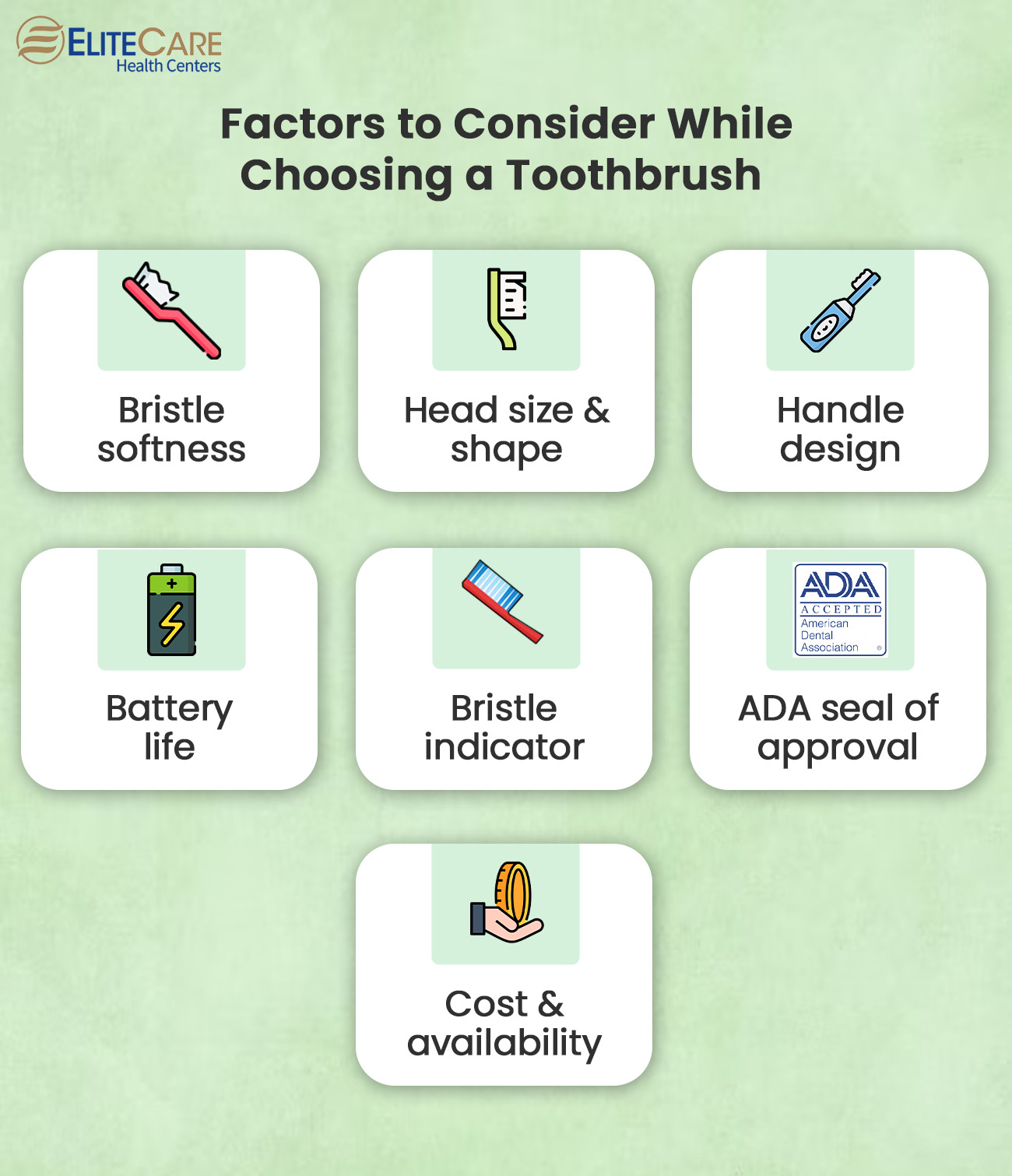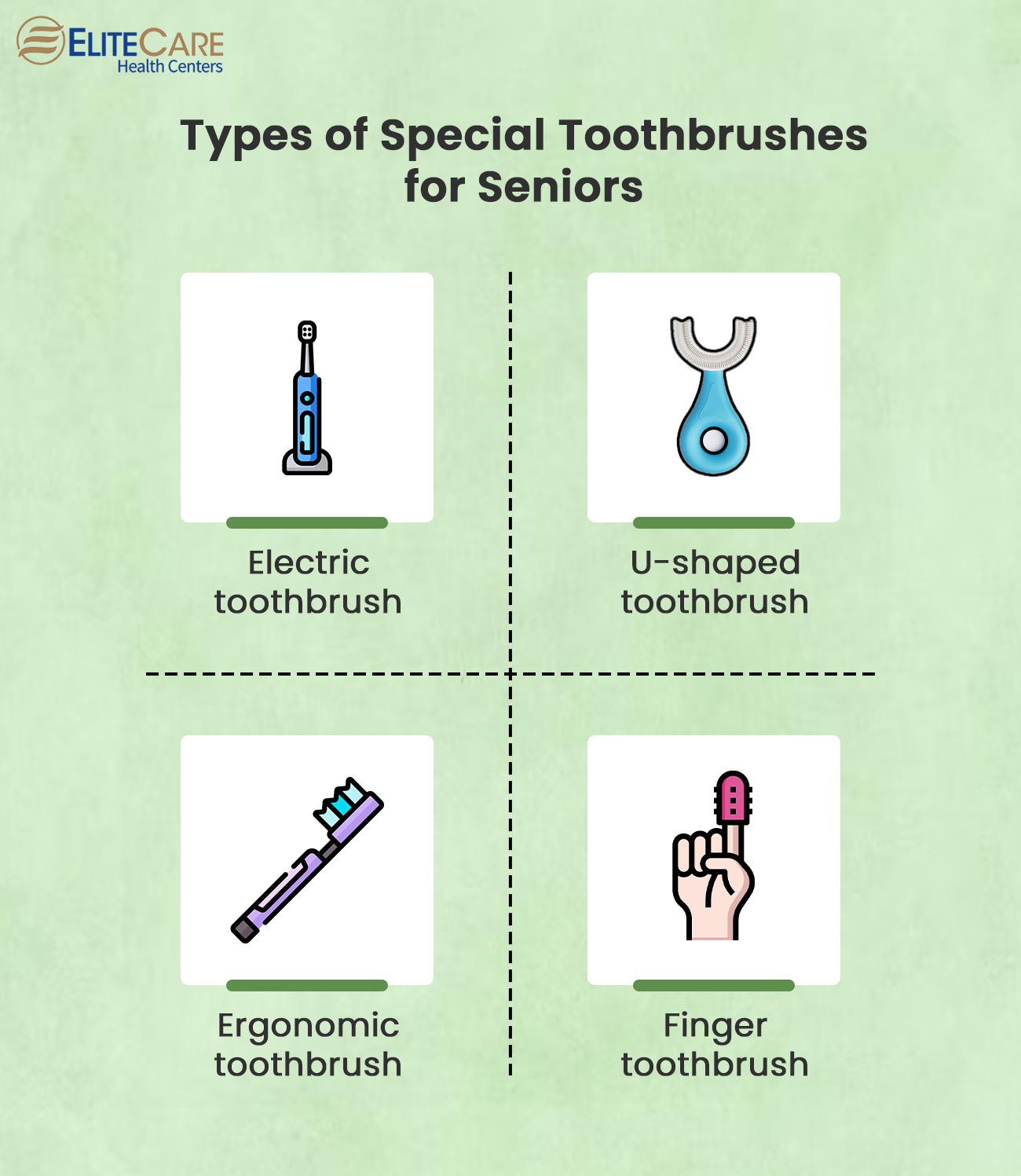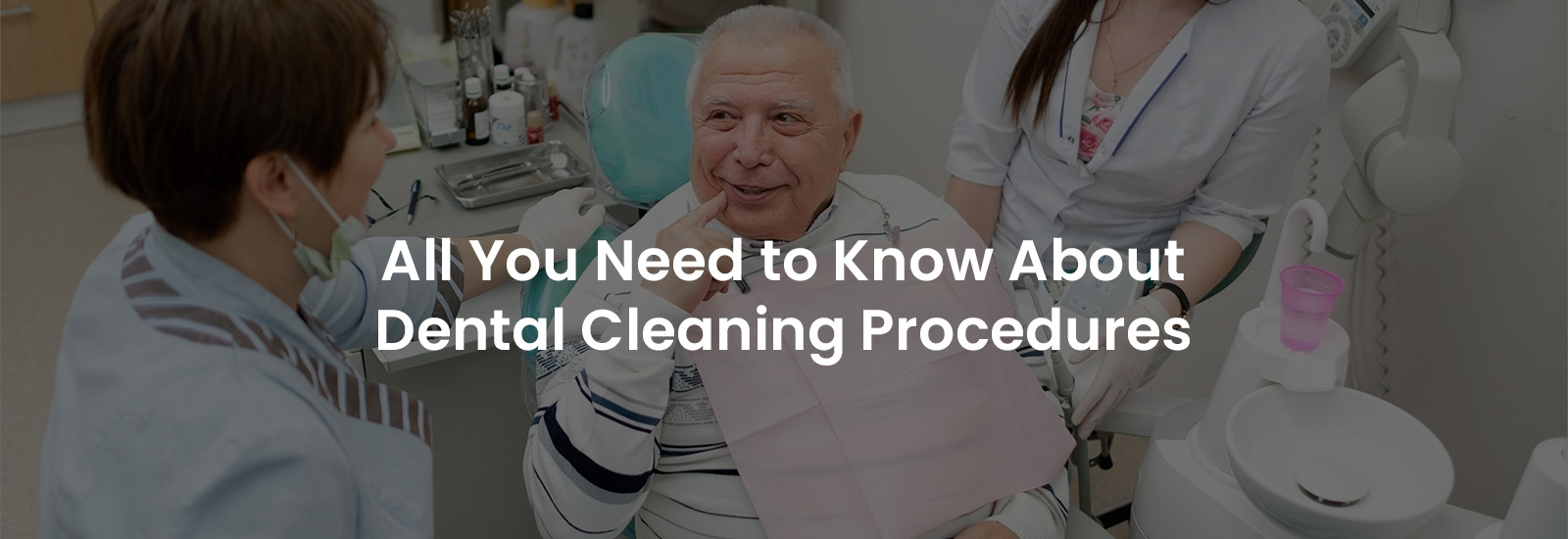
As we age, our oral health requirements change. Due to age-related health issues and limitations, standard toothbrushes may not always be the best fit for elderly individuals. That is why selecting the right toothbrush becomes increasingly important with age to maintain optimal oral health.
In this blog post, we will share detailed insights into different types of toothbrushes seniors can consider. Read on for more.
Why Are Standard Toothbrushes Not Always Suitable for Seniors?
Due to a number of age-related factors and physical limitations, standard toothbrushes are not always the right option for seniors. Older adults experience difficulty holding or gripping a standard toothbrush effectively because of limited hand strength and dexterity. Similarly, due to health issues like arthritis or Parkinson’s disease, seniors may have trouble maintaining a steady hand while brushing with a standard toothbrush.
In addition, seniors are more likely to have gum recession and increased gum sensitivity. In such cases, standard toothbrushes with hard bristles can irritate sensitive gums and cause discomfort.
How to Choose a Toothbrush for an Older Adult

1. Bristle softness
As we age, our gums tend to become more sensitive. Therefore, seniors should consider using toothbrushes with soft bristles, which are gentler on the gums. Try to find toothbrushes labeled “soft” or “extra soft.”
2. Head size and shape
According to the CDC, approximately 2 in 3 (68%) older adults in the United States have gum disease. One of the primary reasons behind gum disease is ineffective plaque removal, especially from the hard-to access areas.
A smaller head size allows better access to all areas of the mouth, including the back teeth. Moreover, seniors should consider toothbrushes with a tapered or angled head to reach those difficult-to-access areas.
3. Handle design
Seniors with arthritis or limited dexterity may find it difficult to hold a toothbrush. For this reason, they should use toothbrushes with textured grips or ergonomic handles that provide better control and reduce the risk of slipping.
4. Battery life
Those opting for electric toothbrushes should check the battery life. Choose models with longer-lasting batteries or rechargeable options to reduce the need for frequent recharging or battery replacement.
5. Bristle indicator
Some toothbrushes have colored bristle indicators that fade over time, signaling when to replace the toothbrush. These toothbrushes are particularly helpful for seniors since they may have difficulty remembering when they last changed their toothbrush.
6. ADA seal of approval
Use toothbrushes with the American Dental Association (ADA) seal of approval to ensure that the toothbrush meets specific quality and safety standards.
7. Cost and availability
Consider the budget and choose a toothbrush that is readily available for replacement.
Moreover, seniors should consider toothbrushes that align with specific dental conditions, such as braces or dentures. It is best to consult a primary care physician, dentist, or dental service provider for personalized recommendations.
Types of Special Toothbrushes for the Elderly?

1. Electric toothbrush
Dentists often recommend electric toothbrushes for seniors with limited dexterity or mobility. Electric toothbrushes come with built-in timers to ensure seniors brush for at least two minutes. In addition, these toothbrushes have oscillating or rotating bristle heads to remove plaque more effectively while requiring less physical effort.
2. U-shaped toothbrush
The unique design of this type of toothbrush ensures that it fits over the teeth and cleans all surfaces simultaneously. They usually have soft silicone bristles, which are less likely to irritate sensitive gums. U-shaped toothbrushes are easier to hold and manipulate for seniors with limited dexterity.
3. Ergonomic toothbrush
These toothbrushes have specially designed handles that are easier to grip and control. They often come with widened, textured grips to reduce strain on the hand and wrist, making them suitable for seniors with arthritis.
4. Finger toothbrush
These are small, soft toothbrushes that fit over the fingertip. They are designed for gentle and precise cleaning of both the teeth and gums. Finger toothbrushes are easy to control and are a good option for seniors with limited hand dexterity.
While selecting a special toothbrush for a senior, consider their specific needs, such as their flexibility, comfort, and oral health conditions. Consult a dentist or dental service provider, and get regular dental check-ups to maintain good oral health.
How Often Should You Replace Your Toothbrush?
Over time, toothbrushes can accumulate bacteria, the bristles can get damaged, and therefore, the toothbrushes can become less effective at cleaning the teeth.
Most dental professionals recommend replacing the toothbrush or its head every 3 to 4 months. This general guideline applies to both manual and electric toothbrushes.
If the toothbrush bristles get frayed, bent, or damaged before the 3–4-month mark, it is better to replace it sooner. Also, seniors who have undergone dental procedures like oral surgery should replace their toothbrushes to reduce the risk of infection.
The Bottom Line
An individual will typically need a minimum of four toothbrushes annually if they replace the toothbrushes at regular intervals. Conventional toothbrushes incorporate a blend of plastic, nylon, and rubber, which may take years to decompose in landfills. Therefore, it is important to inquire whether local grocery stores, recycling facilities, or nearby drop-off services accept used dental hygiene items and dispose accordingly.
For any queries or concerns about oral health and hygiene, contact EliteCare Health Centers, a primary care medical clinic in Florida, and consult a primary care physician. We provide a wide range of primary and senior care services. Contact us to schedule an appointment now!






